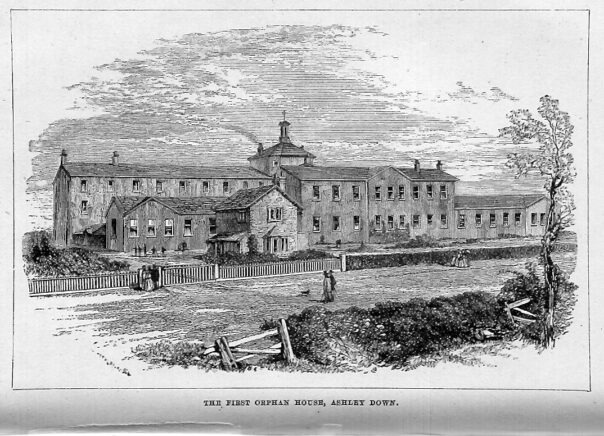
As well as co-founding the Plymouth Brethren movement, Victorian preacher George Muller set up a world famous orphanage in Bristol funded purely – his Narratives claimed – by prayer alone. Across the world, Muller continues to inspire countless evangelical christian books, films, TV shows and even a ballet. There is a small museum to Muller in one of the old Muller Homes, on Ashley Down Hill. Muller’s role in welfare and care history is significant: Dickens was one of a number of people visiting the city to see the institutions, and Dr. Barnardo was a keen follower of Muller’s ideas. 2,000 orphans would parade annually through Bristol, bringing the city to a standstill.
Yet writer and researcher Dr Kate Brooks takes a more critical and contextualising look at this ‘wonder even in this age of wonders’, as the Muller orphanages were then described. Drawing on Muller archives unavailable to the general public, Dr. Brooks tells the untold story of the thousands of children who left the institution categorised as either ‘recommended’ or ‘unrecommendable’ for work in the second half of the nineteenth century. In this talk she describes how the institution aimed to save souls whilst judging bodies according to their perceived productivity. She illustrates how the children were labelled according to Victorian values of capitalist efficiency and racialised pseudo-science, and explains what happened to those who did not fit the standards of the day.
These findings challenge the conventional narrative of the Muller story. Dr Brooks is a Bristol-based foster carer herself, and great grand daughter of orphan no.458, one of the many to work and settle in Bristol. Her hope is that in telling this version of the Muller story, the ’orphs’ as they were locally known, can be let out of the archives to find their place in Bristol’s people’s history.